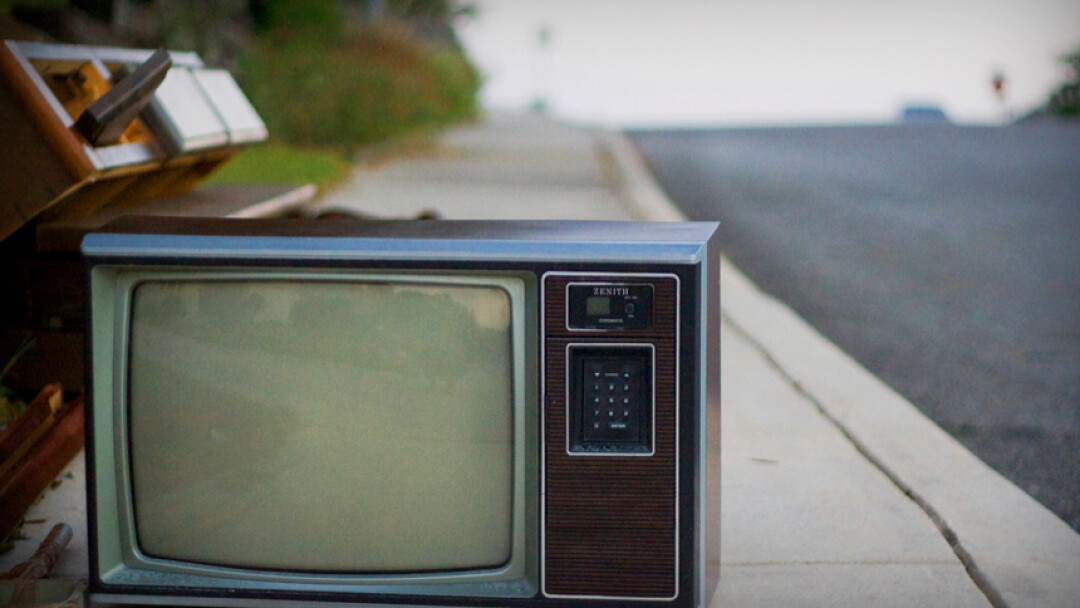What happened to Community Television?

Our own Community Television station moves forward with gutted budget, reduced staff and space
Many of you may have completely forgotten – or never even knew – that until recently, Eau Claire was home to one of Wisconsin’s most robust and well-funded public access television stations (aka Public, Education, Government or “PEG” Access stations). A few years ago, Charter Communications moved our own Community Television (CTV) from its long-time home on channel’s 11 and 12 to channels 96 and 97 (and digital channels 993 and 994). If you never bothered to re-auto-program your TV, you lost the stations completely. Since CTV and public access channels in general rely in large part on people finding the station as they flip around, this had a negative impact on viewership. But that’s only the start of the challenges currently faced by our station.
Eau Claire used to charge Charter special fees to help fund Community Television, the money amounting to 50% of its annual budget. Starting this year, those funds are gone.At around the same time, new legislation was passed in the state of Wisconsin which hindered municipalities (like the City of Eau Claire) from charging cable companies (like Charter Communications) certain fees. Eau Claire used these fees to help fund CTV, the money amounting to 50% of its annual budget. Starting this year, those funds are gone.
So Eau Claire's flagship public access station is now challanged to provide the same services on one half of its previous budget – and a fraction of its previous staff (it’s down to three core employees, having let go of five part timers). It also needs to reduce its office/studio space, currently located in Banbury Place.
We could go on and on about how horrible the outcome of this legislation is, as it’s basically killing public access television across the state of Wisconsin,* but instead, let’s look forward. CTV Executive Director Joel Desprez, between setting up to shoot a school board meeting on Monday, answered some questions via email.
What are the biggest challenges facing CTV right now – what are you trying to tackle first?
Desprez: "The civic information we provide is our first priority, getting the workings of government out to the citizens it serves. With only three of us, that's a challenge by itself.
How will CTV be changing as far as what viewers will notice?
Desprez: "We're going to be a little lean on special programming. Non-profit interviews, street updates, and recording WPR's The West Side are going to be harder fit into our schedule. We'll be looking for volunteers to help accomplish some of that. And if we can find other communities in our viewing area that want to use our services, we may have more meetings. Election seasons will be a real challenge."
Are there any plans to try something new programing with the station, working with the resources you have?
Desprez: "We obviously need to broaden the availability of the information we provide. Cable is not the hospitable place it was. The equipment to stream our programming [over the internet] is on order. We'll probably test it for a few weeks before opening it to the public. Archiving meetings and making them available at our website is also a possibility, if we can work through our funding issues. We have been posting a lot of stuff to YouTube for a long time. Many are linked on the "video" page of our website, at cvctv.org. Please notice the 'donations' button as well."
Are there any other public asccess stations that are doing big things with the web? There seems to be a bit of a grudge against the web because, despite recent convergence, it's still not TV.
Desprez: "In Wisconsin, the stations that seem to be doing the most on the web are the ones that are run by local government. Stevens Point, Oshkosh and Madison, for example, have civic meetings available online. Also some school districts have done some programming on the web. The common factor seems to be having IT department personnel available to help implement the new technology So, I don't think that "grudge" is the right word. PEG Access stations have generally been heavily funded by cable systems and viewed themselves primarily as a cable service. Our bad. But a few stations have started low-power FM radio stations. Eau Claire and Oshkosh are examples. In Eau Claire (and, on a good day, Chippewa Falls), our Government Channel audio is available at WRFP-LP, 101.9 FM.
Despite maintaining one of Wisconsin's largest and most/more well-funded PEG stations for decades, CTV appears to lack the community participation found in larger markets. Is this true? Has it tapered off? If so, why do you think the general community is not taking advantage of the services you provide?
Desprez: "Our focus changed quite a bit a few years back. We started to concentrate on making better programming for the Government Channel. Going out and getting forums in the community, trying to create a local C-Span. At the same time, transformations in video equipment have made it affordable for many local filmmakers to own their own cameras and editors.
"We work very closely with the Eau Claire Local Independent Filmmakers organization on exercises we call 24-hour or 48-hour video projects. The next contest will be a 28-day video project. People can get details about that on our website as well.
"Non-profit organizations are using social networking and YouTube more. We help some create web content, but when the cable company moved our channels off their "main drag", it definitely did some damage and decreased some interest. The Cable Company doesn't have to care about that any more, and they don't. Religious organizations remain a strong component of the community channel schedule. As we develop our web-based delivery methods we hope to increase our value to our producers and maintain our relevance to the community. We have challenges but we're prepared to meet them."




















